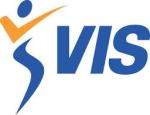
Performance Edge Psychology see athletes from a range of different sports and levels for both both face to face appointments or online consultations. We are experienced working with all ages of athletes from juniors all the way to elite/professional/olympic athletes.
Performance Edge Psychology believe that performing at one’s best depends on many factors, but being in peak psychological health is vital. Our psychologists are passionate about looking holistically at the athletes well-being, ensuring that their mental health is being appropriately managed and that they are receiving the best emotional support in order to achieve the successful results and reach their full potential. We work holistically with athletes meaning that we don’t seperate the athlete and their performance from the rest of their life – athletes have daily struggles, pressures, relationship issues and mental health concerns like the rest of us. We are a one-stop-shop for athletes in all areas of their life.
Anxiety and doubt are normal emotions associated with competition but the ability to manage these emotions is crucial to an athlete’s performance. With the margin of success so narrow at the highest level, an athlete’s mental preparation and mind set is often the difference between winning and losing.

When athletes lack clarity regarding their direction and despite all the best training and preparation things don’t seem to work out on comp day – its time to address the mental component of their game. Psychology can have a major impact upon sports performance and understand the significance of a managing emotions and cognitions prior to and during competition is key. Performance Edge Psychology works with individuals and sporting groups to effectively apply proven sports psychology methods.
Topics Covered in Individual Sessions and Presentations
- Managing Performance Anxiety
- Mindfulness techniques for performance enhancement – self-regulation of attention in sport performance, task focus and “flow”
- Resilience Training (overcoming adversity)
- Self-awareness – self regulation, monitoring and “observing self”
- Acceptance techniques – allowing thoughts and emotions to be experienced without letting them affect performance
- Difference between process and outcome goals – values and the importance of acting in a manner that is congruent with these values instead of being influenced by negative thoughts and emotions
- Self Compassion – rather than self confidence and how self compassion impacts performance
Contact Performance Edge to discuss one-one coaching on sports psychology techniques or regarding delivering presentations or workshops to your sporting organisation aimed at either athletes or coaches.
Recent sporting organisations that Performance Edge Psychology have worked with include:
Here’s a short video clip featuring Caroline when she competed in the Olympics and with her briefly sharing some tips for athletes around achieving peak performance.














